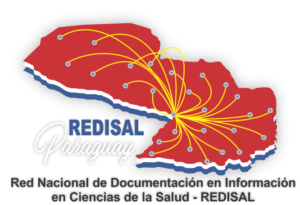Hacia la cobertura sanitaria universal en la detección neonatal
Towards universal health coverage in the newbornscreening
Mem. Inst. Invest. Cienc. Salud (Impr.); 13 (2), 2015
Año de publicación: 2015
La cobertura sanitaria universal (CSU) está ocupando el centro de los debates sobre las reformas de los sistemas de salud. Desde el 2.000, los desafíos planteados para cumplir con los Objetivos de Desarrollo del Milenio han señalado la necesidad de un "retorno del Estado" en el campo de la salud. Consecuentemente, se renovaron los compromisos y responsabilidades que competen a los Gobiernos en cuanto a sus obligaciones para con los ciudadanos y, con ello, una nueva forma de participación comprometida y solidaria para resolver problemas específicos e impostergables para el desarrollo de los pueblos. Con la CSU se podrá asegurar que todas las personas reciban los servicios sanitarios que necesitan, sin tener que pasar penurias financieras para pagarlos.
Para que una comunidad o un país pueda alcanzar la CSU se deben cumplir varios requisitos como:
un sistema de salud sólido, un sistema de financiación de los servicios de salud, acceso a medicamentos y tecnologías esenciales y personal sanitario bien capacitado. Los programas de detección neonatal forman parte esencial de todo servicio de salud. El país debe garantizar que todos los RN tengan acceso a la detección y el tratamiento oportunos, sin que las familias incurran en gastos considerables y tengan que realizar el pago directo en el momento de recibir el servicio. Paraguay está realizando grandes esfuerzos para el logro de la cobertura universal en la detección neonatal. En el presente artículo se pone de manifiesto la situación actual de la DN en el país en el contexto latinoamericano.
Universal health coverage (UHC) has been the main focus of discussions on the reformof health systems. Since 2000, the challenges posed to meet the MillenniumDevelopment Goals have pointed out the need for a "return of the state" in the field ofhealth. Consequently, commitments and responsibilities corresponding to Governmentsin their obligations towards citizens were renewed and, with it, a new kind of engagedand supportive participation to solve specific and urgent problems for the developmentof peoples. The UHC will ensure that all people receive the health services they needwithout having to go through financial shortages to pay for them. For a community or acountry can reach the UHC several requirements must be met, such as: a solid healthsystem, a funding system for health services, access to essential medicines andtechnologies, and well-trained health personnel. Newborn screening programs are anessential part of any health service. The country should guarantee that all newbornshave access to timely screening and treatment, without the families incurring in considerable costs and having to make the payment at the time of receiving the service.In Paraguay, great efforts are being made towards achieving universal coverage innewborn screening. The present article highlights the current situation of newbornscreening in the country in the Latin American context.


